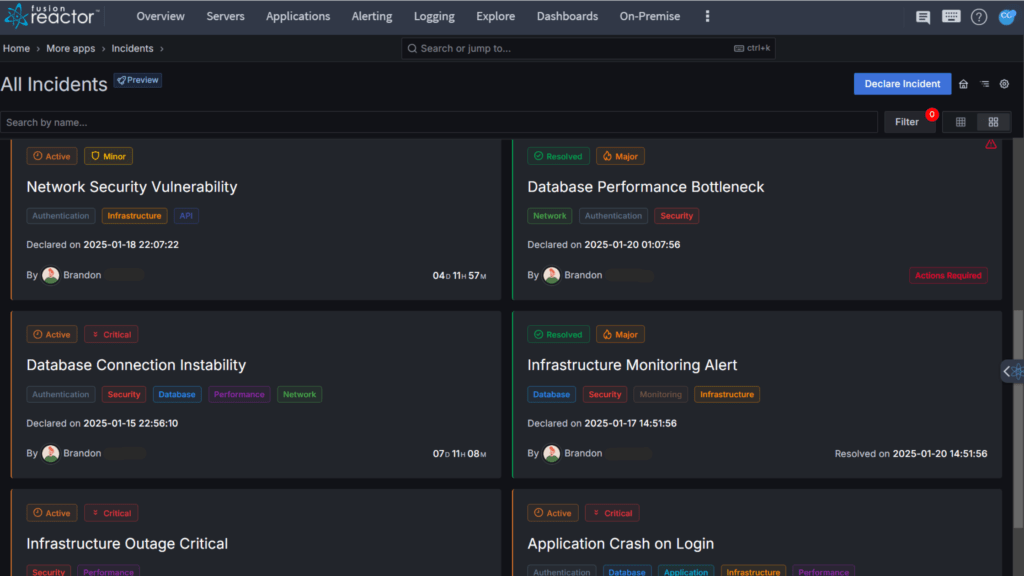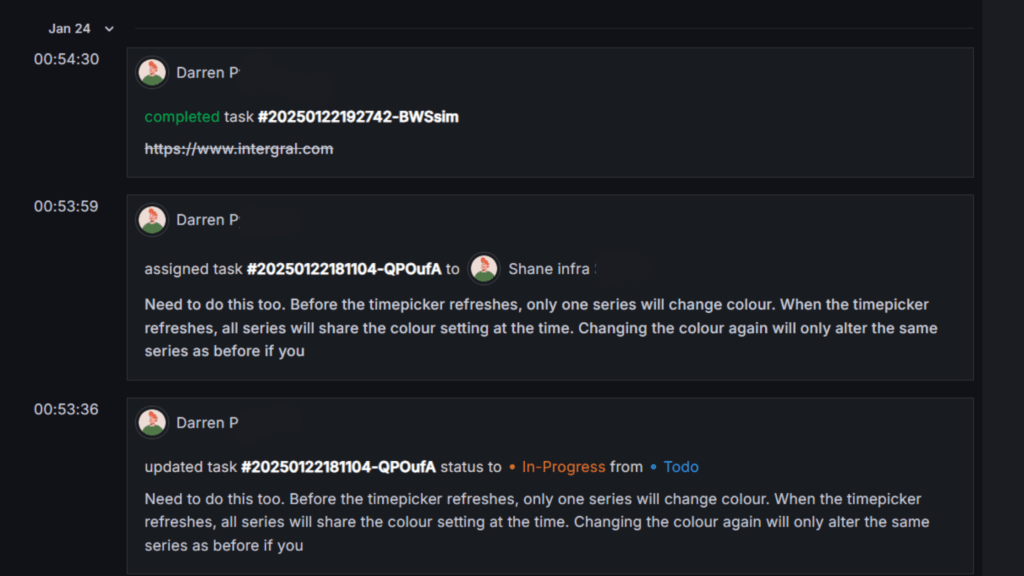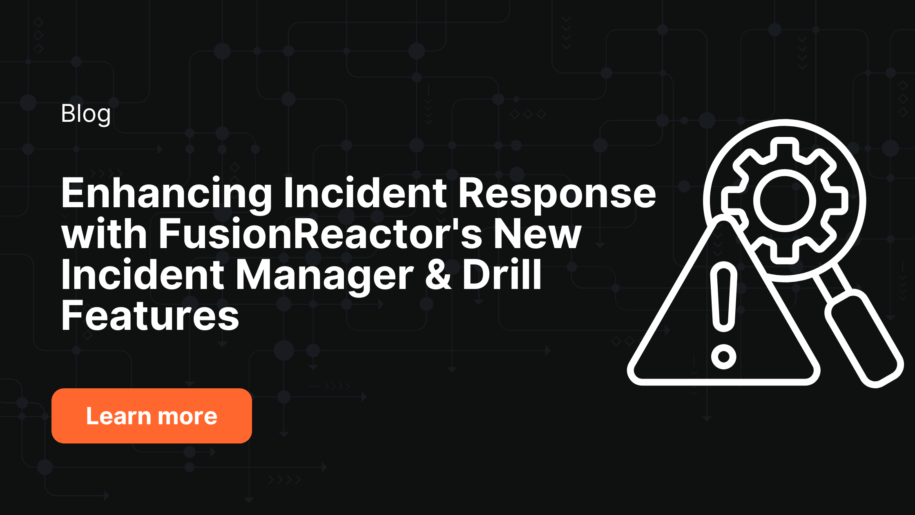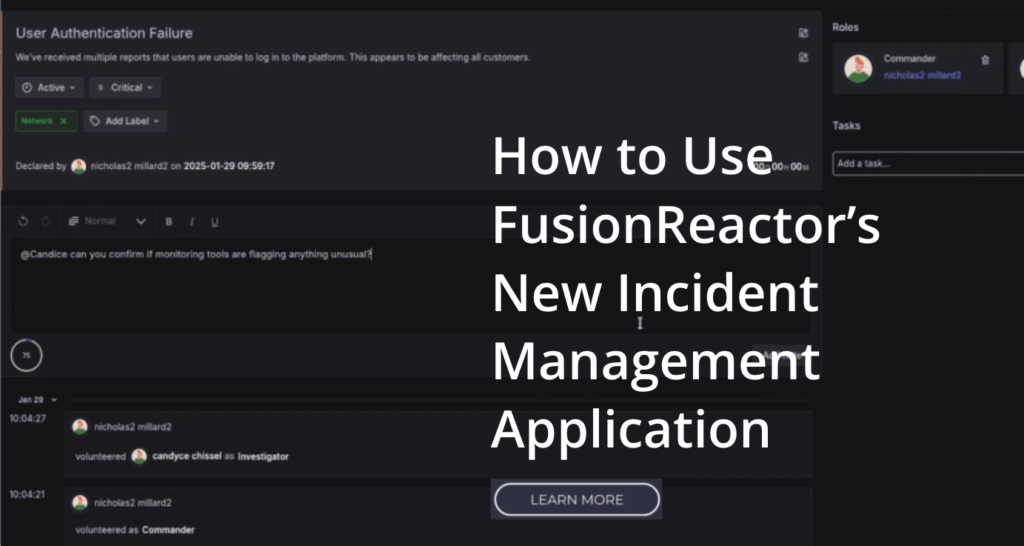Robust incident management tools are crucial in the ever-evolving landscape of Site Reliability Engineering (SRE). FusionReactor’s latest addition to its cloud platform, the Incident Manager, offers powerful new capabilities for managing incidents and conducting preparedness for incident response drills. Let’s explore how this feature can transform your team’s incident response process.
Real-Time Incident Management
The new Incident Manager is explicitly designed for SRE teams. It offers comprehensive tools for tracking and managing incidents as they occur. One standout feature is maintaining a detailed timeline of events, decisions, and actions taken during an incident.
Consider a scenario we often encounter: “The main site is down.” When such an incident is created, the system facilitates:
- Immediate team member notifications and involvement
- Real-time collaboration and communication
- Task creation and assignment
- Progress tracking through resolution

Collaborative Task Management
The Incident Manager introduces a robust task management system that enables teams to:
- Create and assign tasks to specific team members
- Track task status from creation to completion
- Maintain visibility of all ongoing activities
- Adjust priority levels based on developing situations
A handy feature is the Kanban board view, which provides:
- Clear visualization of task status
- Easy task organization by incident
- Quick identification of bottlenecks
- Efficient workload management across team members

Documentation and Learning
One of the most valuable aspects of the Incident Manager is its ability to maintain a comprehensive record of:
- All communications during the incident
- Actions taken and their outcomes
- Task assignments and completions
- Resolution steps and reasoning
This documentation becomes an invaluable resource for:
- Post-incident reviews
- Process improvement
- Team training
- Compliance requirements
Incident Response Drills
Perhaps the most innovative feature is the ability to conduct incident response drills. This functionality allows teams to:
Practice Scenarios
- Create simulated incidents
- Run through response procedures
- Test communication channels
- Validate escalation processes
Team Development
- Build muscle memory for emergency responses
- Identify gaps in current procedures
- Improve team coordination
- Test new team members’ readiness
Process Refinement
- Evaluate security protocols
- Assess response times
- Identify bottlenecks
- Refine documentation

Security and Compliance
The drill feature also serves an important role in meeting security and compliance requirements by:
- Documenting regular testing of incident response procedures
- Providing evidence of team training
- Demonstrating continuous improvement efforts
- Supporting audit requirements

Looking Forward
As organizations focus on reliability and incident response, tools like FusionReactor’s Incident Manager become increasingly vital. The combination of real-time incident management with drill capabilities creates a powerful platform for handling actual incidents and preparing for future challenges.
For teams looking to enhance their incident response capabilities, FusionReactor’s new Incident Manager offers a comprehensive solution that combines the best practices of modern SRE with practical, easy-to-use tools for real-world applications.











